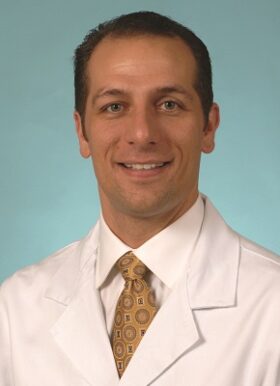
Phillip S. Cuculich, MD
Professor of Medicine
Professor of Radiation Oncology
Co-Director, Center for Noninvasive Cardiac Radioablation (CNCR)
- Phone: 314-362-1291
- Fax: 314-454-5211
Related Links
Center for Noninvasive Cardiac Radioablation
Education
- Bachelor of Science, Biochemistry: Boston College, Chestnut Hill, MA (1997)
- Doctor of Medicine: Vanderbilt University School of Medicine, Nashville, TN (2001)
- Residency: Internal Medicine, Northwestern University, Chicago, IL (2004)
- Chief Resident: Internal Medicine, Northwestern University, Chicago, IL (2005)
- Fellow: Cardiovascular Diseases and Electrophysiology, Barnes-Jewish Hospital, Washington University, St. Louis, MO (2009)
Board Certifications
- Cardiovascular Disease
- Electrophysiology
Clinical Interests
Arrhythmias, sudden cardiac death, atrial fibrillation, ventricular tachycardia, inherited (genetic) disorders of the heart. I see patients in the hospital and in clinic for consultation regarding heart rhythm disorders. Additionally, I attend in the Cardiac Care Unit (CCU) at Barnes-Jewish Hospital.
Research Interests
Electrocardiographic Imaging (ECGI): In collaboration with Dr. Yoram Rudy (Washington University Biomedical Engineering), we have applied a new noninvasive imaging system (ECGI) to create three-dimensional maps of arrhythmias, with a focus on ventricular tachycardia (VT) and atrial fibrillation (AF). Through better understanding of basic mechanisms of arrhythmia, the ultimate clinical application of this research is to tailor specific therapies for individual patients based on the unique characteristics of each arrhythmia.
Risks and Benefits of Implantable Defibrillators (ICDs): In collaboration with colleagues in the Cardiac Electrophysiology group, we have been able to track long-term outcomes of our patients who underwent implantation of an ICD for the primary prevention of sudden cardiac death over the last eight years. Through a better identification of the patterns of survival and ICD therapy over time, we can help shape future indications for ICD therapy to target patients most likely to receive benefit.
Cardiogenetic Syndromes: In collaboration with specialists from St. Louis Children’s Hospital, Washington University cardiac electrophysiology, heart failure, hypertrophic cardiomyopathy and Washington University Genomics and Pathology Services (GPS), we have begun a clinic to address the complex testing, interpretation and counseling for patients and families with suspected genetic syndromes that affect the heart. Current efforts focus on diseases such as long QT syndrome (LQTS), arrhythmogenic right ventricular cardiomyopathy (ARVC), hypertrophic cardiomyopathy (HCM), catecholaminergic polymporhic ventricular tachycardia (CPVT), Brugada syndrome (BrS), and dilated cardiomyopathies with conduction system disease.